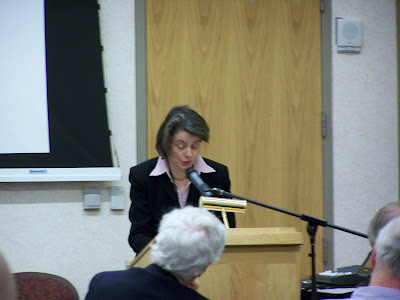
This past week, my friend Joyce and I decided to be nerds and attend the Philosophy and Liturgy conference at my (now) alma mater Calvin College. It was definitely more philosophical jargon than I'm used to, and the irony of a bunch of talking heads sitting around talking about how great embodiment was definitely wasn't lost on me. Anyway, one lecture I thought was absolutely brilliant (as well as understandable!) was Sarah Coakley's talk, "Beyond ‘Belief’: Liturgy and the Cognitive Apprehension of God." Here are my notes, even though they hardly begin to do justice to her paper.
Intro:
-part of the reason secular Europe lacks faith is because of "untaught bodies," not just "untaught minds."
-liturgy in of itself conveys a particular type of knowledge/truth
1. Religious Experience: problems with using this as a framework for knowing God
-insists on direct/unmediated perception of God
-relies on sporadic, self-authenticating experiences
-interprets mystical experiences apart from wider asetic narratives
-God= "other" to be percieved, not means of all perception.
2. Insights from feminist epistemology
-questions "perception at a distance," such as the classic philosophical examples of percieving a chair in the middle of the room.
-insists that we can't ignore the significance of personal/communal interactions
-need to take identity of embodied knower into account
-primary relationships (such as a mother and infant) are a basis for knowing later on, and provide a basis for reflection on knowing God.-->"fundamental and ongoing knowledge by aquaintance."
3. Liturgical knowledge of God
-litergy irreducibly conveys theoloical truth/intimacy with God.
-litergical practices are socially mediated, bodily enacted, and give cognitive access to pers
onal knowledge of God.

-Gregory of Nyssa: through liturgy, we train the physical senses and begin to sense as Christ senses. (the "spiritual senses" tradition, beginning with Origen)
-liturgical knowing=sensual acuity, affective longing
-engaging in liturgical practice causes us to assent to the basic beliefs of the Christian faith in different ways over time, the goal being "full integration of embodied selfhood into the life of Christ."
-liturgy engages us in trasformation toward an eschatological goal.
-eschatological moments where time stands still are moments where we remind ourselves corporately of where we are going.
I thought what she said made a lot of sense, especially the part about the problem with trying to percieve God as an "other" from a distance, and not as "the means of all perception," especially knowing what I know about psychology and human development. When babies are born, they "know" their mother by her voice, even though they are not yet self-aware and cannot consciously understand who their mother is. They become securely or insecurely attached based on whether or not their parents respond to them consistently. This forms a personality disposition that will stay with them throughout their entire lives, all before they can consciously apprehend who their parents are. I wonder if the writer of 1 Peter was subconsciously thinking about liturgy when he wrote, "Like newborn babies, crave pure spiritual milk, so that by it you may grow up in your salvation."

6 comments:
Great notes Rachel!
{{Gregory of Nyssa: through liturgy, we train the physical senses and begin to sense as Christ senses. (the "spiritual senses" tradition, beginning with Origen}}
Two notable old universalists. Coincidence?? {g}
JRP
Heh. Guess I have a little bit of a selective memory, huh? I think she might have mentioned Evagrius in there too...
Great thoughts here, for sure.
I raised in a low church, non-liturgical background am only beginning to understand this, even at my ("old") age.
I think this makes so much sense and is so important for us in our experience driven society. It has been helpful for me, and I'm barely beginning to scratch the surface on it, really.
Rachel,
I'll be checking in on you. I like the way you think and communicate. I am a long time calvinist who has embraced a more generous orthodoxy in recent years. I graduated from a Presbyterian College in the south and appreciate remembering how it feels to be young and just finding your way in work and life.
Blessing,
Don
Hey, thanks for dropping by, Don! Hopefully I'll post something worth reading again soon...
Hello! I am pleased to find someone else engaging in the thoughts of the illustrious Sarah Coakley. Have you by any chance read any of her other works?
Post a Comment